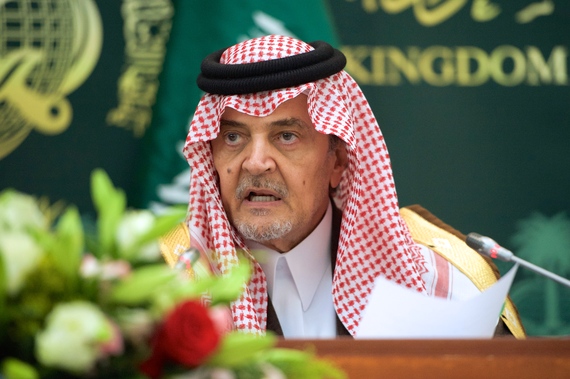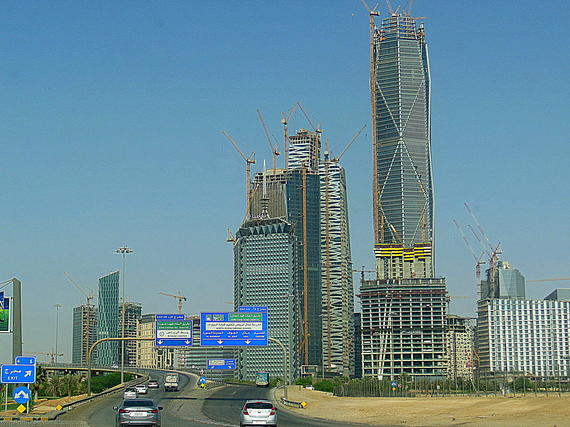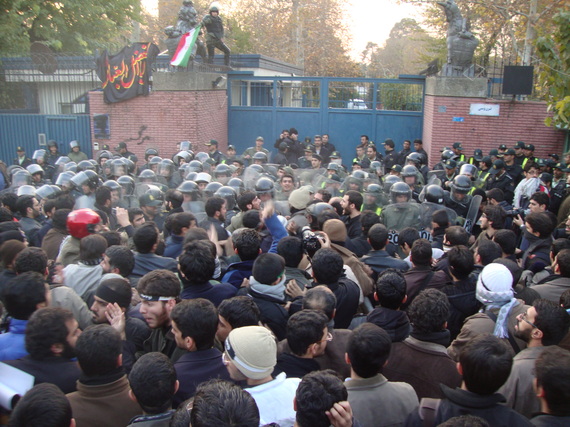Some recent media portrayals of Saudi Arabia as a reckless and foolish local player in the Middle East are not only misguided; they are also outdated. The comparison is often drawn between Saudi Arabia and Iran as two regional powerhouses engaged in a struggle for domination of the Middle East, with a sectarian ideology of "Sunni vs Shia" hatred fueling their mutual ire. To start with, let's try to print a fairer and, frankly, more accurate picture of Saudi Arabia. The nation has seen life expectancies double over the course of a generation, and infant mortality rates have fallen from the levels of Sub-Saharan Africa to the levels of Europe since the Kingdom's founding in 1932. In the early days of the Kingdom, nine out of ten citizens were illiterate and could not go to school. It is now a country with universal education and a 90% literacy rate. They owe this progress not only to the wealth brought on by oil (Iran and Iraq could both have experienced similar economic miracles if oil was the only factor) but also to the government's policies, guiding this economic wealth towards stability on the domestic front, and towards integration with the global community on the foreign policy stage. Let's also dispel the notion that Saudi Arabia is in decline or that the increased forwardness of its foreign policy is "foolishly aggressive". On this latter point, let it be noted that western journalists who complain that Saudi Arabia does not take the lead on the regional level, relying too much on its western allies, are now the very same people who are decrying Saudi policies as "aggressive". Do they want Saudi Arabia to lead regionally or don't they? And if not Saudi Arabia, then who? On the former point that the Saudis are in "decline" because of regional threats, I don't think that it would be news to anyone that regional threats are not a novelty to the Middle East. The end of Saudi Arabia has, apparently, been imminent since the founding of the Kingdom all those decades ago. As the late Prince Saud al-Faisal recalled, "this government has shown versatility and permanence. We have faced many problems. When oil came in the '50s, they said this country cannot survive because the wealth will change the underpinnings of the government. But it's here. In the '60s, when they were calling Nasser the wave of the future, Nasser went away and the government is still here. After the liberation of Kuwait, saying that hundreds of thousands of American troops existing in Saudi Arabia would surely mean the death knell of the kingdom of Saudi Arabia -- it is still here." 
Now to Iran, a nation that has just had major international sanctions lifted as a result of a nuclear deal that many in the world and the United States view with deep suspicion. The deal itself is the result of extreme U.S. patience as the Obama Administration, desperate for a trademark diplomatic "breakthrough" seemed to be willing to do anything to arrive at the result it desired. Now, the U.S. approach seems to be maintaining the deal at all costs. No insult is too great; no threat is too dangerous; no real meddling by Iran in the affairs of American allies in the region or even aggression against U.S. assets and forces is too egregious. The lifting of sanctions, to the familiar (if banal) accompaniment of "the need to be vigilant about the deceit and treachery of arrogant countries, especially the United States..." from Iran's Supreme Leader, will mean be the release of 100 billion dollars to a nation with a track record of aggression and interference and a state sponsorship of terrorism dating back to 1979. A stark comparison between the two countries was on display in the moods and actions on the streets of Tehran and Riyadh, respectively, on January 2nd 2016. Following the execution of Saudi cleric Nimr al-Nimr, Iranians, seemingly encouraged by the extreme rhetoric of their government condemning the House of Saud to face "divine vengeance", stormed, torched and occupied the Saudi embassy in Tehran. The Tehran City Council even took the step of renaming the street outside the Saudi embassy after the executed cleric. Even if the Iranians did not encourage the storming of the Saudi Embassy on an official level, the police clearly either stood by idly or were simply unable to control their own angry population (in which case Iran has an even bigger problem).
The Saudis responded by doing what any other nation would do under such circumstances: they closed down their embassy, recalling their ambassador and cutting off diplomatic ties with Iran. The contrast was clear even at this moment of great tension: Saudi Arabia calmly gave Iranian diplomats official notice and 48 hours to leave the country. Nimr al-Nimr was a Saudi citizen who went through due process and appeals as it exists within the Kingdom. His case was taken all the way to the Saudi Supreme Court before the final sentence of execution was upheld. His execution was carried out along with the execution of 46 other, mostly Sunni, extremists. This was clearly an internal issue for Saudi Arabia. Saudi Foreign Minister Adel al-Jubeir had said that al-Nimr was "as much of a religious scholar as Osama Bin-Laden" and if one looks at al-Nimr's rhetoric it's easy to see the similarity of calls for destabilization and violent insurgency. In a region concerned with stability, al-Nimr's execution should not have come as a surprise.
No matter what, there is no excuse to torch an embassy or to characterize the Saudi response as reckless. Following due diplomatic process and notification should be seen as an act of restraint on the Saudi side. But torching embassies is nothing new to the Iranians. From the seizing of the American embassy in 1979 to the 2011 attack on the British embassy, the Iranians have be at this for a very long time.
From the Gulf Arab perspective, Iran's activities have not been limited to torching embassies. The litany is long: from its relentless support of Bashar al-Assad's regime resulting in the death of over 250,000 Syrians that displaced some 12 million more and its support of Hezbollah in Lebanon ; to the 2011 attempt on then Saudi ambassador al-Jubeir's life; to the presence of its Revolutionary Guards in Baghdad or its support for the Houthi rebellion in unseating the internationally recognized government of Yemen, Iran is seen as a consistently intrusive and destabilizing force. Coupled with its consistent calls to wipe Israel "off the map", Iran has earned its place on the U.S. State Department's list of official state sponsors of terror. Everyone would benefit if Iran used its newly released funds to improve the lot of its people and to cease its interference in the affairs of neighboring states. To contain Iran, should its behavior continue, the increasing warmth between the three most powerful militaries in the area - Saudi Arabia, the Emirates and Israel - could be advanced to the level of strategic cooperation on issues of security and intelligence sharing. With its newly released money, the government of the Islamic Republic has the opportunity to start to address its own internal problems rather than projecting problems onto its neighbors.This turnaround would not only be to the benefit of Iran and its people but also to the increased prosperity and security of the Arab Gulf States and all the other nations of the Middle East. Here's hoping that the Iranian government will one day see this point of view and commit to changing their ways. In the meantime, let's be cautious and not hold our collective breath.


